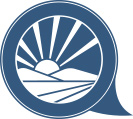
MOOC meetings inspire learning from historic fiction to Hollywood
By Patti Mallin
This spring, the Sunday afternoon MOOC crew investigated the worlds of historical fiction. At each gathering, anywhere from five to a dozen people explored ever-changing definitions of historical fiction, which we found to be quite the moving target. We heard the differences between how an historian and a journalist approach the research and writing of historical fiction, from the authors themselves. And we learned the phrase “anxiety of influence” to label our concern over how readers of fiction might mistake a novel for historical record – an example would be the enormous number of stories written about the Salem witch trials compared to the small amount of time spent examining primary sources.
In theory, throughout the week and at our own paces, we followed an online class offered by the University of Virginia via Coursera, where we watched lectures and read excerpts from texts written over the course of hundreds of years. In practice, we staked our Sunday claim to Computer Room B where we discussed the lectures and the assigned readings, explored issues in writing our own works of historical fiction, expressed excitement over Wolf Hall finally appearing on PBS, talked about volunteering for Project Gutenberg, and drank increasing amounts of coffee.
New Takoma Park resident Jean Krueger compares this MOOC to a book club. “I get to hear other readers’ take on whatever I’m reading and have often gained insights I would not otherwise have. I find that so in this group, as well. I had not previously given much thought to how historical fiction developed or considered how each author approached it, given known historical facts. I think I will question this more in the future as I read each new book.”
“I think I will question this more in the future as I read each new book.”
Jennifer Bunch, who is currently writing her own work of historical fiction, has a different takeaway from the MOOC. “I’m finding the class discussions extremely helpful in planning my own historical novel by providing the opportunity to hear what other readers of historical fiction like, don’t like, and hope to gain from the historical novels they read.”
There are a core group of library patrons who participate in almost every MOOC we offer, and others who join for one specific program. In the past we have explored courses titled Ancient Greek Hero and the Moralities of Everyday Life, we have learned “How to Learn” and how Hollywood storytelling changed with advances in technology. As we ease into summer, we are going back to the movies.
Coursera’s “Marriage and the Movies” begins online May 18, and we will meet for the five following Sundays at 12:30 p.m. to watch and discuss films that demonstrate how the depiction of marriage has changed over time since the silent film era. To join us, sign up for the online portion of the course at www.coursera.org/course/marriageandmovies and register for our Sunday meetups at www.takomapark.info/library/programs.html.
All are welcome!
Patti Mallin is a Library Instructional Assistant who presides at our popular Sunday afternoon massive open on-line course offerings along with public services coordinator Rebecca Brown.
This article appeared in the May 2015 edition of the Takoma Park Newsletter. The Takoma Park Newsletter is available for download here.
